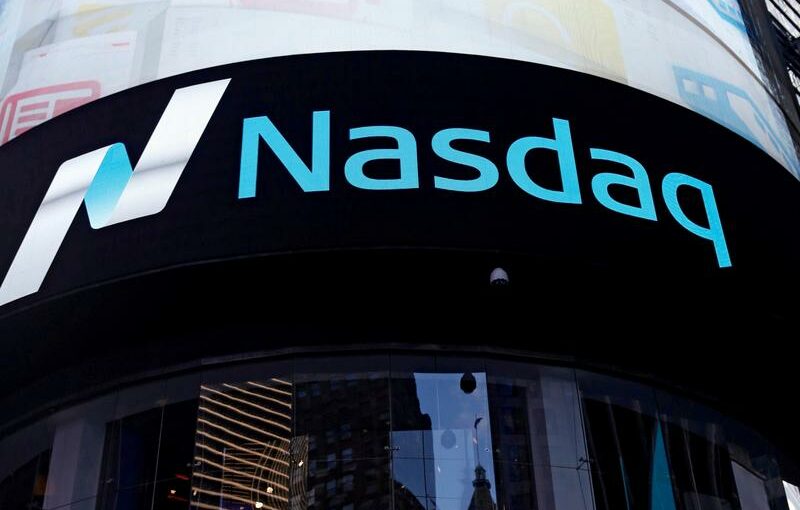(Reuters) – The Nasdaq fell sharply on Wednesday as investors sold high-flying technology shares and pivoted to sectors viewed as more likely to benefit from an economic recovery on the back of fiscal stimulus and vaccination programs.
Microsoft Corp, Apple Inc and Amazon.com Inc dropped more than 1% each, weighing more than any other stocks on the S&P 500.
Energy, financial and industrial stocks gained between 0.8% and almost 3%, all reaching intra-day record highs. Most other S&P sectors declined.
The Russell 1000 value index, which leans heavily on economy-linked sectors, rose 0.3%, while its growth index, comprising large tech companies, fell 0.3%.
“Today is the perfect encapsulation of the big theme we’ve been seeing in the past couple of months: The vaccine rollout is going well and the economy improving, and that is sending yields and rate expectations higher, which is hurting growth stocks,” said Baird investment strategist Ross Mayfield, in Louisville, Kentucky.
The U.S. economic recovery continued at a modest pace over the first weeks of this year, with businesses optimistic about the months to come and demand for housing “robust,” but only slow improvement in the job market, the Federal Reserve reported.
While the vaccine distribution is expected to help the economy, data showed U.S. private employers hired fewer workers than expected in February, suggesting the labor market was struggling to regain speed.
Another report showed U.S. services industry activity unexpectedly slowed in February amid winter storms, while a measure of prices paid by companies for inputs surged to the highest level in nearly 12-1/2 years.
The U.S. 10-year Treasury yield ticked up to 1.47%, pressuring areas of the market with high valuations. It was still off last week’s peak of above 1.61% that roiled stock markets as investors bet on rising inflation.
Rising interest rates disproportionately hurt high-growth tech companies because investors value them based on earnings expected years into the future, and high interest rates hurt the value of future earnings more than the value of earnings made in the short term.
“There is a definite headwind for equity markets if yields go above the 1.5% level with most investors keeping an eye on the pace of yield growth,” said Michael Stritch, chief investment officer at BMO Wealth Management.
The U.S. Senate is expected to take up Biden’s $1.9 trillion coronavirus relief package on Wednesday, with Democrats aiming to get it signed into law before March 14, when some current jobless benefits expire.
In afternoon trading, the Dow Jones Industrial Average was up 0.17% at 31,444.42 points, while the S&P 500 lost 0.69% to 3,843.67.
The Nasdaq Composite dropped 2.1% to 13,078.15.
Exxon Mobil Corp rose 2% after the oil major unveiled plans to grow dividends and curb spending with projections that were less bold than previous years.
Declining issues outnumbered advancing ones on the NYSE by a 1.05-to-1 ratio; on Nasdaq, a 1.75-to-1 ratio favored decliners.
The S&P 500 posted 62 new 52-week highs and no new lows; the Nasdaq Composite recorded 270 new highs and 50 new lows.
Source: Read Full Article
